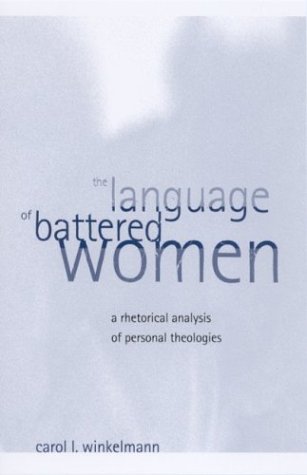

Most ebook files are in PDF format, so you can easily read them using various software such as Foxit Reader or directly on the Google Chrome browser.
Some ebook files are released by publishers in other formats such as .awz, .mobi, .epub, .fb2, etc. You may need to install specific software to read these formats on mobile/PC, such as Calibre.
Please read the tutorial at this link: https://ebookbell.com/faq
We offer FREE conversion to the popular formats you request; however, this may take some time. Therefore, right after payment, please email us, and we will try to provide the service as quickly as possible.
For some exceptional file formats or broken links (if any), please refrain from opening any disputes. Instead, email us first, and we will try to assist within a maximum of 6 hours.
EbookBell Team

5.0
70 reviews
ISBN 10: 079145942X
ISBN 13: 9780791459423
Author: Carol L. Winkelmann
Shows how battered women's personal theologies help them survive and heal, despite the women's knowledge that religion may also have contributed to their oppression. Winner of the 2005 Outstanding Book Award presented by the Organization for the Study of Communication, Language, and Gender (OSCLG) This study of battered women living in a shelter offers a rhetorical analysis of survivors' personal theologies. Author Carol L. Winkelmann holds that while it is virtually ignored in the domestic violence literature, the Christian heritage of many battered women plays a significant, if complicated, role in their language, thoughts, and lives. The women's religious faith serves not only to sustain them through periods of profound suffering, but also to develop solidarity with other culturally-different women in the shelter. Designed to assist women to greater independence, the shelter actually functions as a culture of surveillance where women turn to one another and to their faith to cope with the trauma of violence. To heal, the women engage in dialogue that is dense in religious imagery, talking about the relationship of God and the church to suffering and evil. At the same time, these women also acknowledge that organized religion is very much involved in the maintenance of patriarchal marriage and its attendant abuses in their own lives. Together, battered women are sometimes able to construct creative theological responses to the problem of suffering and evil. A mix of religious and secular languages compels them to devise new ways of thinking about their role in family, church, and society.
1. “I’ll Be Scared for Everyone in the World”: THE PERVASIVENESS OF DOMESTIC VIOLENCE
2. “Here We Women Support One Another”: THE WOMEN’S HOUSE AS SHELTER AND SOCIAL ORDER
3. “Sometimes I Just Want to Give Up”: WOMEN’S ANGUISH, WOMEN’S PAIN
4. “I Sit in the Lord’s Way”: THEOLOGICAL CONCEPTS OF SUFFERING
5. “In a Spiritual Way, God Brings Justice”: BATTERED WOMEN AND THE PROBLEM OF EVIL
6. “In the Bible, It Can Be So Harsh!”: SHELTER WOMEN TALK ABOUT RELIGION
7. “Waiting on God Can Be a Hard Thing”: SUFFERING AND THE PHASES OF HEALING
8. “The Prayer of the Righteous Prevaileth Much”: LANGUAGE CHANGE AND HEALING
9. “If God Were a Woman, It Would Be Wonderful!”: LOCAL THEOLOGY AND SOCIAL CHANGE
a rhetorical analysis of the declaration of independence
personal rhetoric example
a rhetorical analysis essay
personal testimony rhetorical analysis
a rhetorical analysis essay example
rhetoric b.a
Tags: Carol Winkelmann, language, women, rhetorical